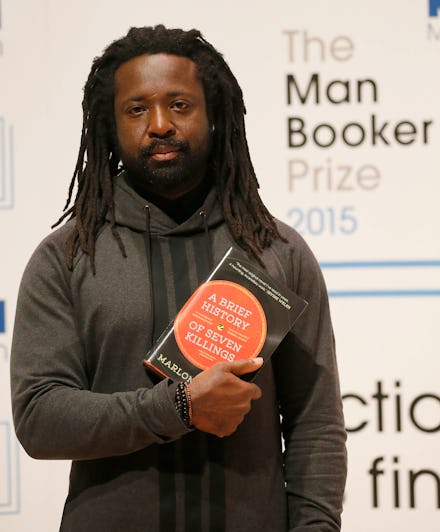Your Books Are Getting More Diverse, But the People Publishing Them Aren't

The publishing world is making slow and steady progress toward becoming more diverse. But despite famed writers of color who have risen to prominence in recent years, the industry itself has not budged.
According to a recently released Publishers Weekly survey, the industry remains stubbornly white. Eighty-nine percent of respondents identified as "white/Caucasian."
Heeding the call: Recent years have seen an online campaign, #WeNeedDiverseBooks, take off on Twitter and become a rallying cry for readers who want to read stories more like their own. Author Daniel José Older explained the importance of diversity last year at Book Con, a conference that takes place in New York City.
"Ultimately, the conversation about diversity is about the truth," he told NPR earlier this year. "We live in a very diverse world, and literature needs to reflect that. And that it hasn't is a failure — is a literary and a human failure. So the conversation is never going away and it will only get louder." The movement spurred readers to take action, posting pictures of themselves with signs about how important diversity is to industry:
Those calls for diversity have borne some highly acclaimed fruit. This year Jamaican-born author Marlon James became the first black writer since 1991 to win the United Kingdom's prestigious Man Booker Prize award, and Hanya Yanagihara and Ta-Nehisi Coates are among this year's finalists for the National Book Award.
Minding the gap: It's not that the industry can't will itself to change. The survey also showed that it's getting younger, which means workers aren't making as much in salary but are probably more in touch with millennial readers. Still, the barriers facing people of color in the industry are pronounced. According to Publishers Weekly, the industry is overwhelmingly white because of "entrenched leadership that includes few people of color, low starting salaries and unpaid internships that together discourage minorities from applying to entry-level jobs." The survey says publishers don't do enough to reach out to potential workers who are also racial or ethnic minorities. "A number of respondents noted that they believe companies have started to try to broaden their workforce," Publishers Weekly writes, "but that those efforts will take time."
But even racial diversity isn't enough, according to Older. "We're right to push for diversity, we have to, but it is only step one of a long journey," Older wrote last year on BuzzFeed. "Lack of racial diversity is a symptom. The underlying illness is institutional racism. It walks hand in hand with sexism, cissexism, homophobia and classism. To go beyond this same conversation we keep having, again and again, beyond tokens and quick fixes, requires us to look the illness in the face and destroy it."